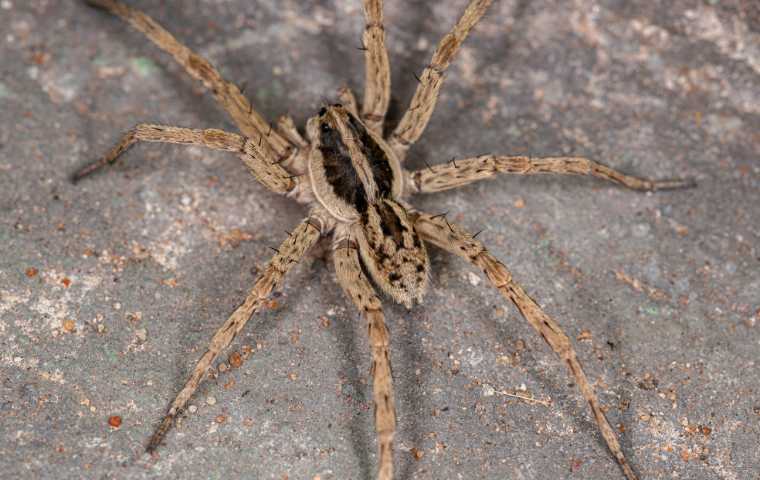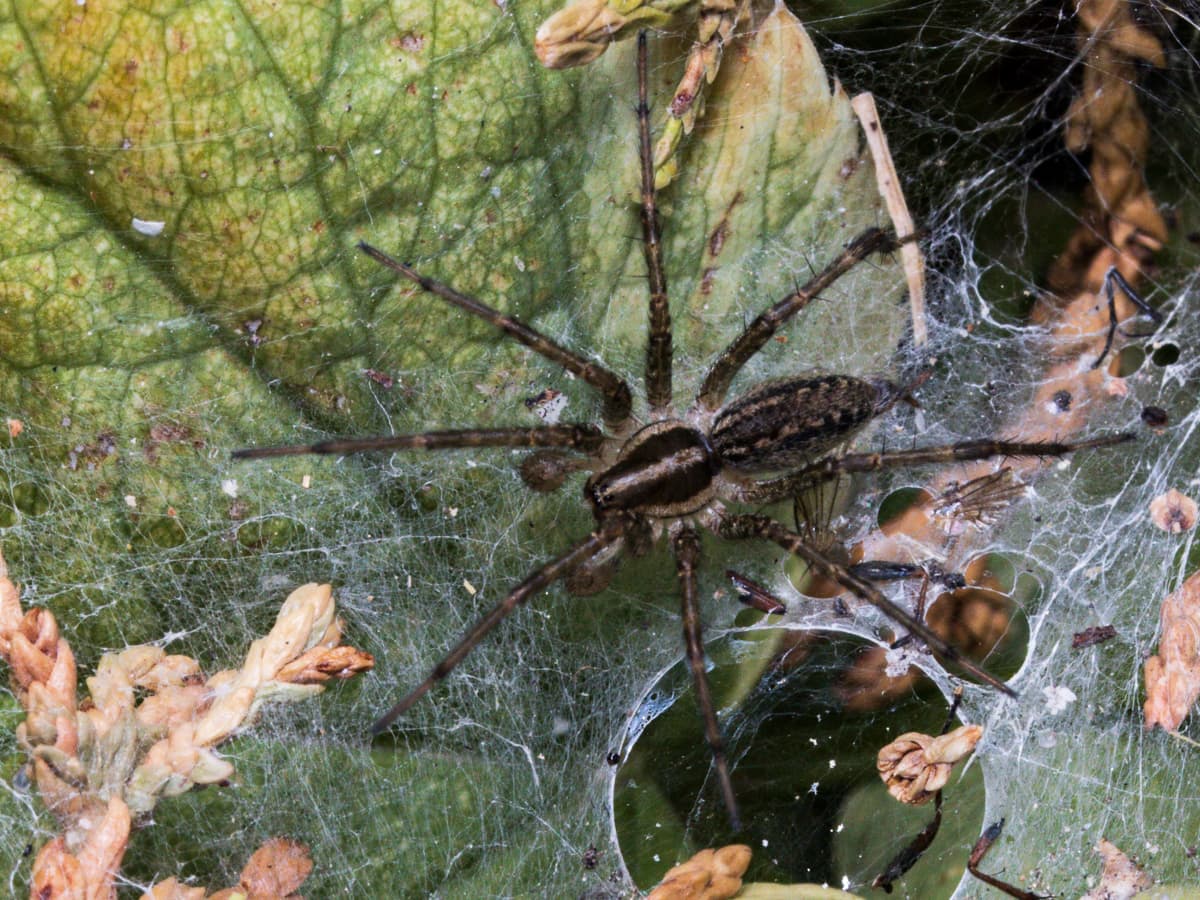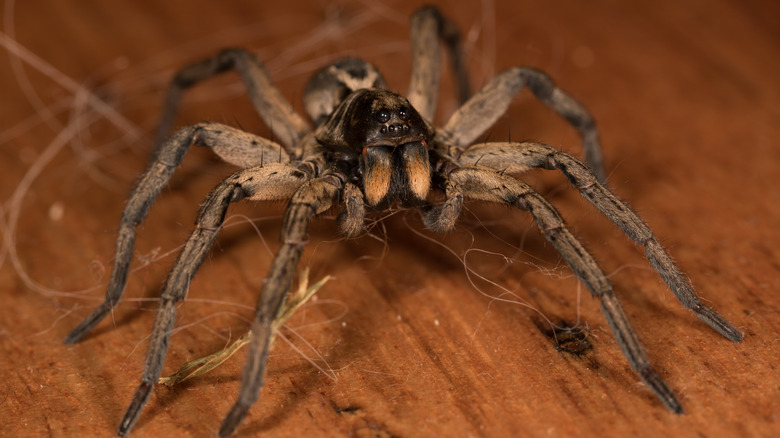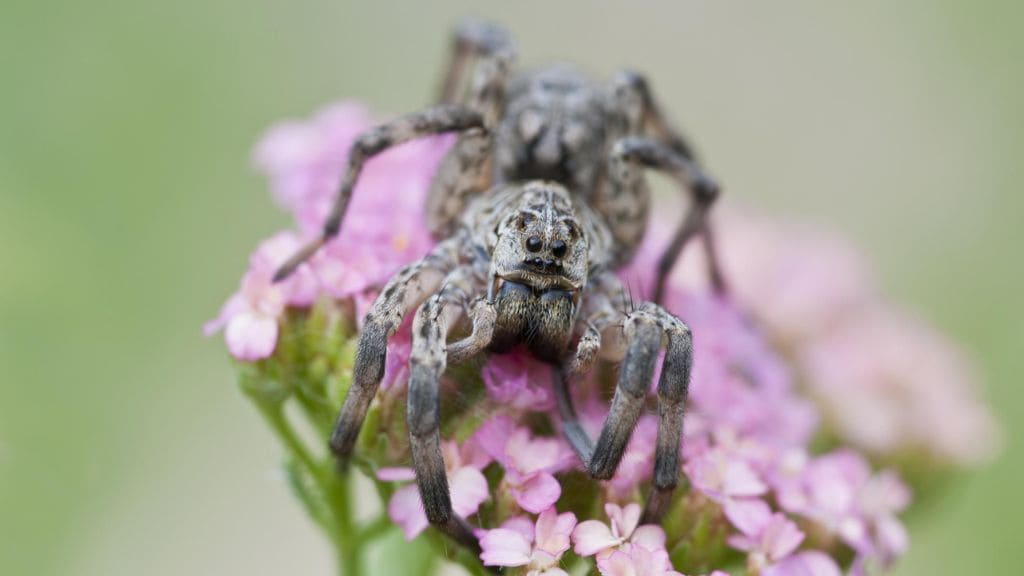Wolf-spiders are often celebrated for their impressive hunting skills and distinctive appearances, but their auditory capabilities have intrigued both scientists and enthusiasts alike. While these formidable arachnids are known for their silent, stealthy movements, recent discussions have stirred up curiosity about whether they can produce a snorting sound. This question might seem peculiar at first, but it opens up a fascinating exploration into the world of spider sounds and communication.
Unlike mammals, spiders do not have the same anatomical structures for sound production, leading many to wonder if the concept of a spider snorting is more myth than reality. As we dive deeper into the anatomy and behavior of wolf-spiders, it becomes crucial to understand how these creatures produce sound and what might be misinterpreted as snorting.
In this article, we will unravel the truth behind the sounds wolf-spiders make. From examining their unique respiratory system to exploring personal observations and scientific studies, we’ll provide a comprehensive look at whether these spiders can actually snort and why such misconceptions arise.
Understanding Spider Anatomy and Sounds

1. Spider Anatomy: The Basics
To understand whether wolf-spiders can snort, it’s essential to start with spider anatomy. Unlike insects, spiders possess a unique respiratory system. They have specialized organs known as book lungs, which facilitate gas exchange.
- Book Lungs: These are stacks of thin, leaf-like structures where oxygen exchange occurs. Located in the abdomen, they differ significantly from the tracheal systems seen in insects.
- Spinnerets: These are the organs responsible for silk production, and while they play no direct role in sound production, they are crucial to the spider’s overall functionality.
2. How Spiders Make Sounds
Spiders are not known for producing loud noises, but they do have ways of creating sounds:
- Stridulation: Some spiders rub body parts together to produce sound, a behavior known as stridulation. This can be seen in various spider species, including some wolf-spiders.
- Hissing and Purring: Certain spiders, like the tarantula, are known to produce a low-frequency hissing or purring sound, especially during mating rituals or when threatened.
Wolf-Spiders: Characteristics and Behavior

1. Overview of Wolf-Spiders
Wolf-spiders, part of the family Lycosidae, are known for their robust build and agile hunting skills. Unlike many spiders, they do not spin webs to catch prey. Instead, they rely on their speed and stealth.
- Hunting Style: Wolf-spiders are ground-dwelling predators. They use their excellent eyesight and swift movements to capture prey.
- Appearance: They are characterized by their large eyes, robust legs, and often a hairy body that contributes to their intimidating look.
2. Communication and Sound Production
Wolf-spiders, like many other spiders, do have some capacity for sound production, although it is not as advanced as that of other animals.
- Vibration Detection: Wolf-spiders are highly sensitive to vibrations, which they use to detect prey and communicate with each other. These vibrations can sometimes be perceived as sound.
- Stridulation in Wolf-Spiders: While not common, some wolf-spiders engage in stridulation, rubbing body parts together to create a sound. This is typically a soft noise, not a snort.
The Concept of Snorting in Spiders

1. What is Snorting?
Snorting is a sound produced by the expulsion of air through the nostrils, often associated with humans and some animals. It is typically a noisy, abrupt sound.
- Human Snorting: In humans, snorting is often due to blocked nasal passages or as a reaction to various stimuli.
- Animal Snorting: In animals, snorting can occur as a form of communication, a reaction to threats, or during physical exertion.
2. Can Spiders Snort?
Spiders do not have lungs or respiratory systems that operate in the same way as mammals. They lack nostrils and a diaphragm, which are crucial for producing snorting sounds.
- Spiders’ Respiratory System: Spiders’ book lungs and tracheae do not support the creation of snorting sounds. Their sound production methods are limited to vibrations and stridulation.
- Misinterpretations: Instances where spiders seem to make a snorting sound are often the result of vibrations or other mechanical noises, not actual snorting.
Personal Observations and Anecdotes

1. The Snorting Phenomenon in Observations
In my personal observations of wolf-spiders and other spider species, I have encountered instances where spiders make sounds that could be mistaken for snorting.
- Accidental Sounds: Sometimes, spiders produce unexpected noises when disturbed or during interactions. These noises can include soft clicks or rustles, but not true snorting.
- Behavioral Observations: Observing spiders closely reveals that any sound perceived as snorting is usually due to vibrations or the movement of the spider rather than actual air expulsion.
2. The Impact of Sound Perception
Our perception of spider sounds can be influenced by various factors, including environmental noise and the spider’s behavior.
- Environmental Context: The surroundings can amplify or distort the sounds spiders make. For example, a rustling leaf or a soft click can be misinterpreted as a snort.
- Behavioral Context: Understanding the spider’s behavior helps in accurately interpreting the sounds they produce. Many perceived sounds are simply part of their natural movements or interactions.
Scientific Studies and Research

1. Research on Spider Sounds
Scientific studies on spider sounds primarily focus on stridulation and vibration-based communication rather than snorting.
- Stridulation Studies: Research on stridulation provides insight into how spiders produce sound by rubbing body parts. This sound is generally soft and used for mating or defense.
- Vibration Communication: Studies also explore how spiders use vibrations to communicate. This includes both the detection of vibrations and the production of vibrations for various purposes.
2. Limitations of Current Research
While research provides valuable insights, it is limited in scope regarding specific sounds like snorting.
- Focus Areas: Most studies focus on general sound production mechanisms rather than specific sounds or behaviors.
- Future Research: Further research could provide more detailed information on the range of sounds spiders can produce and their purposes.
Common Misconceptions

1. Misconceptions About Spider Sounds
Several misconceptions exist about spider sounds, including the belief that spiders can snort like mammals.
- Sound Production: Spiders produce sounds through different mechanisms than mammals, and the sounds are typically not analogous to snorting.
- Behavioral Misunderstandings: Observations of spider sounds need to be contextualized within their natural behavior and anatomy to avoid misconceptions.
2. Addressing the Myths
Clearing up myths involves understanding the actual mechanisms of sound production in spiders and differentiating between real sounds and misinterpretations.
- Educational Efforts: Providing accurate information and clarifying myths can help in better understanding spider behavior and biology.
- Expert Insights: Consulting spider experts and referring to scientific studies can provide more reliable answers to common questions.
FAQs

1. Can wolf-spiders actually snort?
No, wolf-spiders cannot snort in the way mammals do. Spiders lack the anatomical structures required for producing a snorting sound, such as nostrils and a diaphragm. The sounds attributed to snorting are typically vibrations or other mechanical noises rather than true snorting.
2. What sounds do wolf-spiders make?
Wolf-spiders can produce various sounds, but they are not the same as snorting:
- Stridulation: Some wolf-spiders create sound by rubbing body parts together. This is usually a soft, scraping noise.
- Vibration Communication: They use vibrations for communication and prey detection, which can sometimes be mistaken for sounds.
3. How do wolf-spiders produce sounds?
Wolf-spiders produce sounds primarily through:
- Stridulation: Rubbing body parts like the legs together to create a sound.
- Vibration Sensitivity: Detecting and producing vibrations, which they use for communication and to sense their environment.
4. Can wolf-spiders make noises when disturbed?
Yes, wolf-spiders might make noises when disturbed, but these are generally soft rustling or clicking sounds rather than snorting. The noise is often caused by movement or interactions with their environment.
5. Why do people think wolf-spiders snort?
The idea that wolf-spiders snort may come from misinterpretations of the sounds they make. For example:
- Environmental Factors: Background noise or vibrations can be mistaken for snorting.
- Behavioral Observations: Close observation might reveal sounds that are misconstrued as snorts, but they are not true snorting.
Conclusion
while the notion of wolf-spiders snorting is intriguing, it is not supported by scientific evidence or anatomical feasibility. Spiders, including wolf-spiders, produce sounds through mechanisms like stridulation and vibrations, but not through snorting. The sounds that might be interpreted as snorts are likely vibrations or other mechanical noises rather than actual air expulsion.
Understanding spider sounds involves appreciating their unique anatomy and behavior. By separating fact from fiction, we can better appreciate these remarkable creatures and their place in the natural world.
As a spider enthusiast and expert, I encourage curiosity and further exploration into the fascinating world of spider biology and behavior. The more we learn, the better we can understand and appreciate the complex lives of these incredible arachnids.

